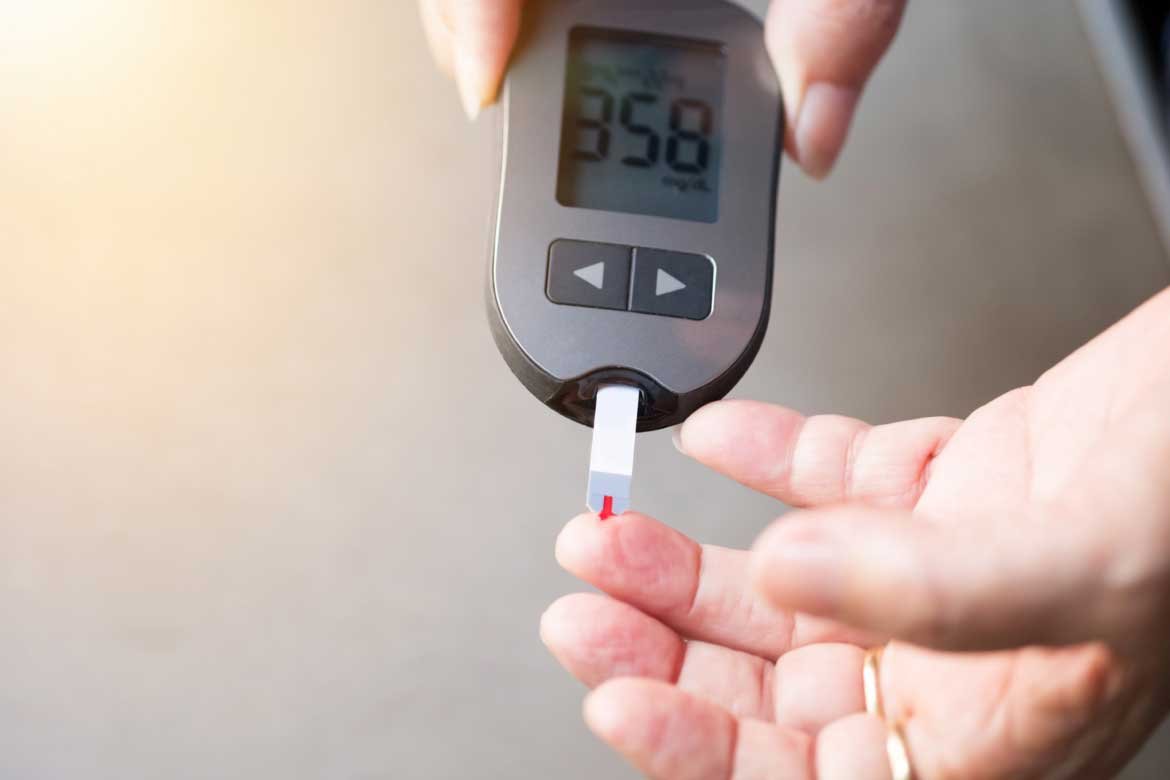Anxiety Disorder: From Symptoms to Treatment | Naturactin Health and Wellness
Naturactin Health and Wellness
Anxiety is a natural response to stress and it is a part of almost everyone’s life. Experiencing occasional anxiety is quite common. It is a way how our brain reacts to stress and keeps us alert of potential danger ahead.
What are anxiety disorders?
Feeling anxious when doing something new, like starting a new job, moving to a new place, or taking a test, is normal. They might be unpleasant but not harmful. In fact, occasional anxiety can motivate you to work harder.
Anxiety disorders are the most common form of emotional disorder and it can affect you at any age. People with anxiety disorders frequently experience intense, excessive, and persistent worry and fear about everyday situations.
Though anyone at any age can experience an anxiety disorder, women are more prone to experience this medical condition than men. With the right treatment, an anxiety disorder can be managed.
Signs and Symptoms
Some of the common signs and symptoms of anxiety disorder include –
- Feeling nervous, restless or tense
- Experiencing an increased heart rate
- Having a sense of impending danger, panic or doom
- Sudden overwhelming fear
- Palpitations
- Sweating
- Breathing rapidly (hyperventilation)
- Trembling
- Having difficulty controlling worry
- Trouble concentrating
- Trouble sleeping
- Feeling weak or tired
- Experiencing gastrointestinal (GI) problems
- Having the urge to avoid things that trigger anxiety
Types of anxiety:
1. Generalized anxiety disorder:
The feeling of excessive, unrealistic worry with little or no reason.
2. Social anxiety disorder:
Social phobia or social anxiety disorder is a psychological condition, in which you feel overwhelming worry and self-consciousness about everyday social situations. People with social anxiety disorder obsessively worry about being judged or viewed negatively by others.
3. Agoraphobia:
This type of anxiety disorder lets people avoid situations or places that might cause them a panic attack or make them feel helpless, trapped, or embarrassed.
4. Panic disorder:
It is a feeling of intense fear that brings on a panic attack. A person with a panic attack may break out in a sweat, experience shortness of breath, chest pain, and a pounding heartbeat or palpitation.
5. Separation anxiety disorder:
Separation anxiety is a type of disorder in which you feel excessive anxious or fearful of losing your loved ones. It is often called a childhood disorder since it affects a child’s development level the most due to the separation of their parents.
6. Specific phobias:
When you feel intense fear of a specific situation or object, like heights or flying, you become a victim of specific phobias. Excessive fear from a specific situation might cause you to avoid even normal situations.
7. Medication-induced anxiety disorder:
The withdrawal symptoms of certain drugs or medications can trigger the symptom of anxiety disorder.
8. Selective mutism:
It is a type of social anxiety disorder in which kids experience difficulty to speak in certain situations, like in school or social functions, while they are absolutely normal with their close family members.
When to see a doctor
You should consult a doctor if you
- Experience excessive worry that is interfering your work, relationship or other parts of your life
- Have other psychological issues along with anxiety and always feel depressed
- Feel your anxiety can be linked to a physical health issue
- Experience uncontrollable fear, worry or anxiety
- Have suicidal thoughts or behavior
Causes of anxiety disorder:
Some of the most common causes of an anxiety disorder include –
- Genetics
- Diabetes
- Chronic pain
- Heart disease
- Thyroid problems, such as hyperthyroidism
- Drug misuse or withdrawal
- Rare tumors that produce certain fight-or-flight hormones
- Respiratory disorders, like COPD (chronic obstructive pulmonary disease) and asthma
- Withdrawal from alcohol, anti-anxiety medications or other medications
Sometimes, one can experience anxiety disorder due to the side-effects of certain medications.
Risk factor:
There are a few conditions that can develop an anxiety disorder. They are called risk factors. The risk factors of anxiety disorders include –
Trauma:
- Living through a traumatic event for a long time can increase the risk of PTSD (Posttraumatic stress disorder), which can lead to panic attacks.
- Stress buildup:
The buildup of smaller stressful life events may trigger excessive anxiety. Work stress, a death in the family, or ongoing worry about finances can be the reason of stress buildup. - History of a mental health disorder:
Dealing with other mental health disorders, like depression, might trigger anxiety disorder. - Stress due to illness:
The poor health condition after a serious illness can cause a significant anxiety disorder. - Personality:
People with low esteem or a certain personality can experience anxiety disorders. - Childhood sexual abuse:
Psychological, physical, or sexual abuse during childhood is significantly linked to anxiety disorders in later life. - Substance abuse:
The use of illegal drugs or alcohol might trigger an anxiety disorder. Some people also use these substances to ease anxiety symptoms.
The complication with anxiety disorder:
Having an anxiety disorder can be more dangerous than you think it is. It can even worsen your mental or physical condition by triggering other issues –
- Depression or other mental health disorders
- Insomnia or trouble sleeping
- Poor quality of life
- Headaches and chronic pain
- Problems functioning at school or work
- Substance misuse
- Digestive or bowel problems
- Social isolation
- Suicide
Diagnosis for anxiety disorders:
If you have the symptoms for anxiety disorders, your doctor might ask you questions or run tests to learn about your health condition and give you medications depending on that. If your doctor is unable to find any physical reason for how you are feeling, they might recommend you to a psychiatrist, psychologist, or other mental health specialists. When diagnosing you, your doctor considers how long you have had symptoms, and how intense they are. It is important to share everything with your consultant that you think might be linked to your anxiety disorder.
Treatment for anxiety disorders:
The symptoms of anxiety disorder can be relieved through medications or psychotherapy.
Medications:
Depending on the severity of your anxiety disorder and the symptoms, your psychiatrist might prescribe you any of the following medications –
Psychotherapy:
It is a type of counseling through which you learn how your emotions affect your behaviors. It is also known as talk therapy. In this therapy, a trained mental health specialist listens to your thoughts and feeling and suggest you ways to manage anxiety disorder.
Cognitive-behavioral therapy is the most common type of psychotherapy in which the therapist teaches you how to turn negative, or panic-causing, thoughts and behaviors into positive ones.
How to manage anxiety disorder:
Prevention is always better than cure. Though there is no certain way to predict when someone can develop an anxiety disorder, you can follow a few steps and change your lifestyle a little to reduce the symptoms of anxiety disorder or prevent it. You should
- Stick to your treatment plan
- Cut down on foods and drink that contain caffeine
- Avoid alcohol and recreation street drugs
- Eat a healthy diet and exercise regularly
- Get better sleep
- Meditate regularly for better concentration
- Manage your negative thoughts
- Get together with friends
You can defeat anxiety disorder only when you want it to do. If you find your psychological condition is worsening, you should seek support from a trained professional.

Paul Ambolo
Blog Contributor
For Inquiries feel free to Contact Us
For our Free Health Concern Quiz, visit www.naturactin.net
Visit our store – www.naturactin.shop






Leave a Reply
Want to join the discussion?Feel free to contribute!